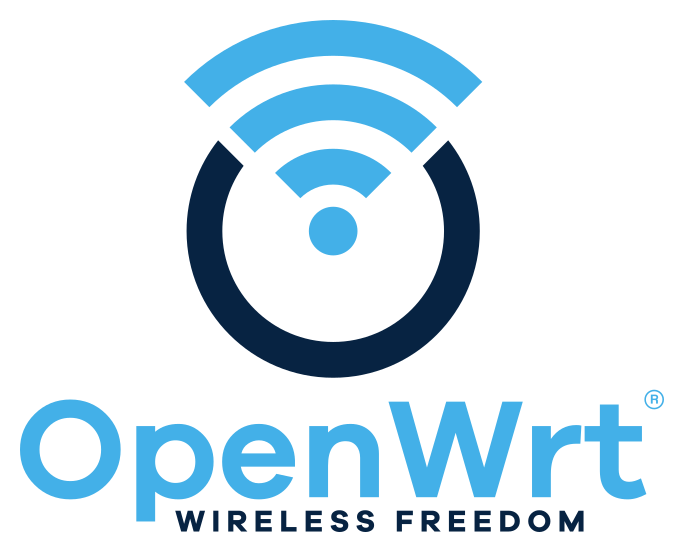A little more status on my 'x86Orion' OpenWrt build.
I realized that I had sort of hit a milestone without really thinking about it. In the past, when I had tried pfSense/OPNsense, I always ended up going back to my LTS fork config for one reason or another. What happened is that I saw I had been running OpenWrt for about a week, without anything really missing or broken. Sure, I can't keep from playing with it, but it's basically all there and stable.
I've been working on learning the code structure via small fixes and 'usability' improvements. Learned how to create my own packages and am currently running my own local package server. I merged in the 21.02.1 update without any problems. Next, I can't avoid really getting into LuCI anymore

I do see that a lot of the luci code is based on an 'n-1' version, which runs with a compatibility layer. This code is a lot easier to understand and I may start with that.
Here's my current commit lists for anyone interested.....
Code:
openwrt
87c1537412 (HEAD -> orion-21.02) Merge branch 'openwrt-21.02' of https://github.com/openwrt/openwrt into orion-21.02
b306954829 odhcpd: ipv6 dns updates
53c000fb5d sysupgrade: update default backup files
0527266b00 dnsmasq: make lease file link for asus access point
e626187878 startup: start odhcpd same priority as dnsmasq
8b00c76e15 opkg: make: add support for customfeeds.conf.default
defe7aa964 Merge branch 'openwrt-21.02' of https://github.com/openwrt/openwrt into orion-21.02
979318ef0f startup: delay dropbear until core services up
ee106ec3a6 files: eliminate unnecessary use of revision code w/version code
f0227c62b8 startup: optimize odhcpd, urandom start sequencing
4383a55647 dnsmasq: update default dhcp.conf
a318985d94 make: add support for default distfeeds.conf
6ea5746e9f target: remove explicit hd0 root
d2f50118b4 git: show patch files in status
packages
f4c020156 (HEAD -> orion-21.02) wsdd2: allow smb multiple interfaces, wsdd2 only supports first
2a1ebf34f wsdd2: init script updates
24c6ecc3f wsdd2: revert to version 1.8.3.2
70689f8eb avahi-daemon: update default configuration
35fd1e9c1 avahi-daemon: move start to end of boot
7afbd398d Merge branch 'openwrt-21.02' of https://github.com/openwrt/packages into orion-21.02
bc8be1efb ip6neigh: add option to set dnsmasq reload_interval
a5995fbe5 ip6neigh: added version 2.0.0
18ff77f45 Merge branch 'openwrt-21.02' of https://github.com/openwrt/packages into orion-21.02
5c6090fcf stubby: run as root to allow access to /dev/crypto
0a61207e6 udp-broadcast-relay-redux: change special addresses
8883627ac udp-broadcast-relay-redux: add multicast option; change defaults
fc3c40bc0 nano: update build recipe; support nanorc
333605112 openvpn: update to 2.5.4
7eb752cf9 avahi-daemon: update default conf
21d31c192 ddns-scripts: update registered ip immediately on update
087280853 acme: misc parameter fixes; eliminate conflicting server checks
b6de41b98 ddns: no-ip: eliminate return after dummy update
3504a0ddd getdns: revert udp max payload check which can block some sites
8062d224b stubby: upstream fix option parsing
7bd94eef5 stubby: change default appdata dir
2fc0a3659 stubby: add additional config options
luci
30c4c9191e (HEAD -> orion-21.02) luci-app-ksmbd: allow multiple interface selection
7c302366eb luci-mod-status: position system log at end, disable refresh on open
ad44fc45e0 luci-mod-status: fit system and kernel log textareas to page
b1879c8421 luci-mod-status: sort neighbour tables by hostname
73fed58c27 luci-mod-status: show all neighbour addresses and add state info
3cb66387d5 luci-mod-status: add hostnames to route/neighbor tables
93f0f4ebea luci-mod-network: sort ipv4/ipv6 leases tables by ip address
b1f140a763 luci-mod-status: sort ipv4/ipv6 leases tables by ip address
bfc87331d1 luci-mod-system: fix name sort in startup.js
a3e919bc48 luci-app-upnp: fix disappearing description field data
e23dde9603 bootstrap: standardize version codes in footer
4448e0ddc1 luci.mk: fix branch detection
7ebd09741e overview: webui/luci firmware release info on separate line
c238bcfc18 dhcp: add dnsmasq proxy-dnssec option
490ff0309c ddns: fix last update time calc
e6e5329928 acme: add support for alpn mode



